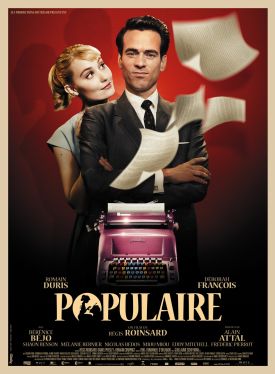Chill Factor
Fred Barnes, writing in The Weekly Standard, tells us that he doesn’t go to the movies anymore, partly because he has got out of the habit and partly because they start too late or too early but mainly because of the left-wing bias of most of the thrillers. “In most thrillers it’s some conspiratorial right-wing group or religious sect or business mogul who’s to blame for whatever bad occurs,” he writes. Nowadays, however, more than any of these the villain is likely to be a military man. In Chill Factor, for example, the bad guy is the renegade Army Major Andrew Brenner (Peter Firth), driven mad by the American military’s unconcern with civilian casualties in Vietnam and then wrongfully imprisoned, as part of a Pentagon cover-up, for the deaths of 18 men in an experiment with a new explosive that goes horribly awry.
His bad experience with the U.S. armed forces causes him to decide, when he is released after spending ten years in Leavenworth, to take to take a terrible revenge. Instantly provided, we know not whence, with big and ruthless soldiers and lots of equipment, he effortlessly defeats the security at the military laboratory where the experimental explosive—which is code-named Elvis and has the curious property of exploding if its temperature rises above 50 degrees Fahrenheit—is kept, intending to steal it and sell it to terrorists. But what all the might of the U.S. government cannot keep safe, soon finds its way into the possession of a couple of ne’er-do-well young men with an ice cream truck. Can they keep the explosive out of the hands of terrorists and at the same time keep it cool enough that it doesn’t blow them up?
As you might expect from a movie that amounts to Speed meeting The Rock, the result is a catastrophic. The loco major’s gung-ho soldiers and sophisticated equipment prove no match for the two kids, a not-terribly-bright all-night convenience-store clerk called Tim Mason (Skeet Ulrich) and a disgruntled employee of the ice cream company called Arlo (Cuba Gooding Jr.) who has stolen the truck in retaliation for not getting promoted. But Arlo is really just a classic black sidekick, the funny man to Mason’s wounded innocent. For like Childe Harold, or Manfred, or Werther, Tim has got a Secret Sorrow. It is that, as a college football player, he went out to celebrate when a teammate got chosen in the NFL draft and was driving home when there was an accident that caused an injury to the would-be pro quarterback. Now he “will never throw a ball in the NFL.” Tim, devastated, “couldn’t handle it; so I split.”
Now, in the wilds of Montana, he is working the night-shift in the all-night convenience store cum café and annoying the local fuzz by being picked up for vagrancy (can they still do that?). Poor Tim! He forms a bond, naturally, with Dr. Richard Long (David Paymer), a scientist at the local Army research institute, with whom he shares not only a passion for fly-fishing but also a Secret Sorrow. The doc’s Secret Sorrow is of course that he developed Elvis, the explosive that must be kept on ice, and so incinerated Maj Brenner’s men.”I never close my eyes without seeing those 18 guys,” he tells the major, shortly before the major shoots him.
At one level, the level at which it appeals to a mass audience, the movie is just a high-concept thriller, and there is a certain amount of excitement generated by this pursuit—though not as much as you might think. After Speed, in which the similar high-concept was that the bomb would go off if the bus’s speed dropped below 50 miles per hour (couldn’t they at least have made the number of degrees different, or counted them in Centigrade measure, like real scientists?), it is hard not to regard the device as too hokey and arbitrary. But what we are left to wonder is what is the point of including Mason’s Secret Sorrow. Or Long’s either, for that matter.
The answer is that the Secret Sorrow is for both of them a kind of fashion accessory, the guarantee of their cool and thus the mark that we are to sympathize with them. For it is made clear to us that their sacrifice and the risks they are prepared to run for their country are not in themselves to be counted on to generate enough sympathy for them. Their country is ungrateful for them in any case, just as it was to Major Brenner. So instead they have to be given, as Bill Clinton recently was by his obliging wife, a history of hidden (but, obviously, not too hidden) suffering in order to attest to their charming vulnerability—which is what the cool pose always masks. But, unlike Elvis, the cooler this movie gets, the more it becomes a disaster area.
Discover more from James Bowman
Subscribe to get the latest posts to your email.






